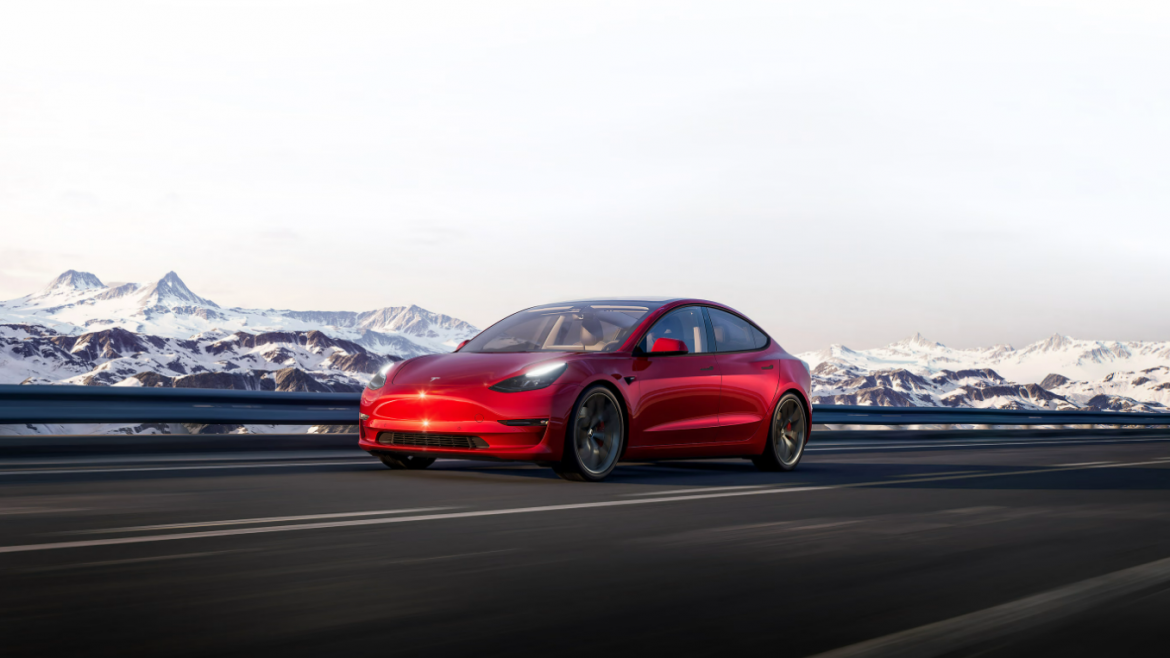Tesla, the U.S. electric vehicle (EV) giant, encountered a notable setback in November as sales of its China-made EVs plummeted by 17.8% compared to the same period last year, according to data from the China Passenger Car Association (CPCA). The decline, marking the most significant drop since December 2022, reflects Tesla’s ongoing efforts to navigate the competitive landscape in the world’s largest auto market.
Contrasting fortunes: Tesla vs BYD
In contrast, Chinese automaker BYD, renowned for its Dynasty and Ocean series of EVs, along with petrol-electric hybrid models, experienced a surge in passenger vehicle deliveries. BYD achieved another record with 301,378 vehicles delivered in November, marking a 31% increase from the previous year. This underscores the fierce competition Tesla faces from local players in China’s dynamic EV market.
Tesla’s struggles and BYD’s record performance
Tesla’s struggle to maintain its market share in China is evident, with a 17.8% decline in China-made EV sales. The pressure to address rising inventories and weakening demand led to a significant drop, reminiscent of challenges faced in December 2022. Despite this, deliveries of China-made Model 3 and Model Y cars showed a 14.3% improvement compared to October. In contrast, BYD’s strong performance and record deliveries highlight the growing demand for electric and hybrid vehicles in China.
Ankit Awasthi, Head – New Mobility Practice, Nomura Research Institute, said, “Tesla sales have plummeted significantly compared to local rivals in China such as xpeng, Nio and BYD primarily due to an aggressive discounting play by Tesla last year in China. As local OEMs caught up, it’s a case of winner takes it all. Local OEM are benefiting from no External commercial borrowing, favourable consumer sentiment towards local produce and above all a great price value fit offered by local OEMs compared to Tesla.”
He further added that Tesla’s capacity in China also saw a temporary reduction as they prepare to launch the next gen Model 3. “That combined with the potential of their cyber truck can quickly push Tesla back as a customer favourite,” he added.
Impact of Tesla’s price war and market share decline
Tesla initiated a price war in China earlier this year, involving over 40 brands in the competitive EV landscape. However, the company’s share of China’s EV market dipped from 8.7% in September to 5.78% in October, as per calculations based on CPCA data. The intensifying competition and shifting consumer preferences towards more affordable plug-in hybrids contribute to Tesla’s challenges in maintaining its market share.
Elon Musk’s diplomacy amidst market challenges
Tesla’s CEO, Elon Musk, has continued his diplomatic efforts in China to navigate the challenging market conditions. Musk was part of a select group of U.S. executives who met with Chinese President Xi Jinping in mid-November. Xi expressed support for Tesla’s development in China, acknowledging the company’s contributions to the country’s new energy vehicle sector. Musk reciprocated by appreciating China’s rapid advancements in the electric vehicle industry.
Tesla’s price adjustments and evolving EV market dynamics
In response to China’s evolving EV market dynamics, Tesla implemented five upward price adjustments since late October. This strategic move aims to adapt to slowing EV demand growth, especially as consumers show a preference for more affordable plug-in hybrids despite the expanding range of battery-only vehicles. Li Auto has also announced plans for the mass production and delivery of its first full EV in February, adding to the competitive landscape.
Xiaomi’s entry into EV production
Beyond traditional automakers, technology companies are also making significant strides in the EV sector. Xiaomi, a prominent smartphone maker, has taken steps toward EV production. A unit of automaker BAIC Group, in collaboration with Xiaomi, has applied for regulatory approval to build two Xiaomi-branded cars, reflecting the broader convergence of technology and automotive industries.
Tesla’s recent sales decline in China underscores the intensifying competition in the country’s booming EV market. With local players like BYD achieving record deliveries and new entrants like Xiaomi entering the fray, the dynamics of China’s EV landscape continue to evolve, presenting challenges and opportunities for both traditional automakers and tech companies.



